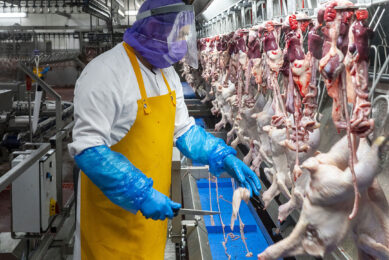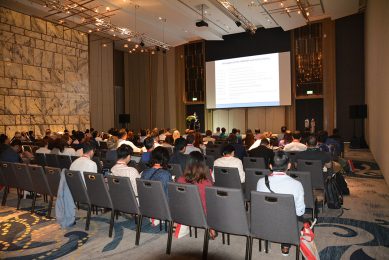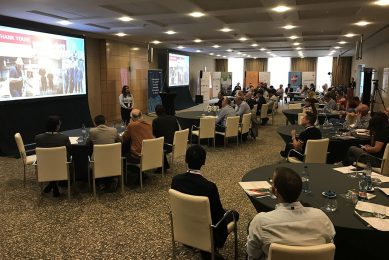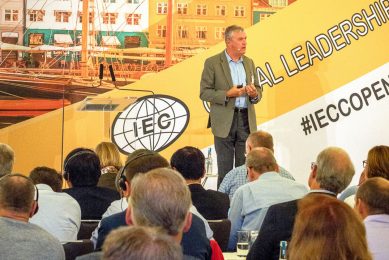UK flock reduction on the cards after ‘perfect storm’ hits producers
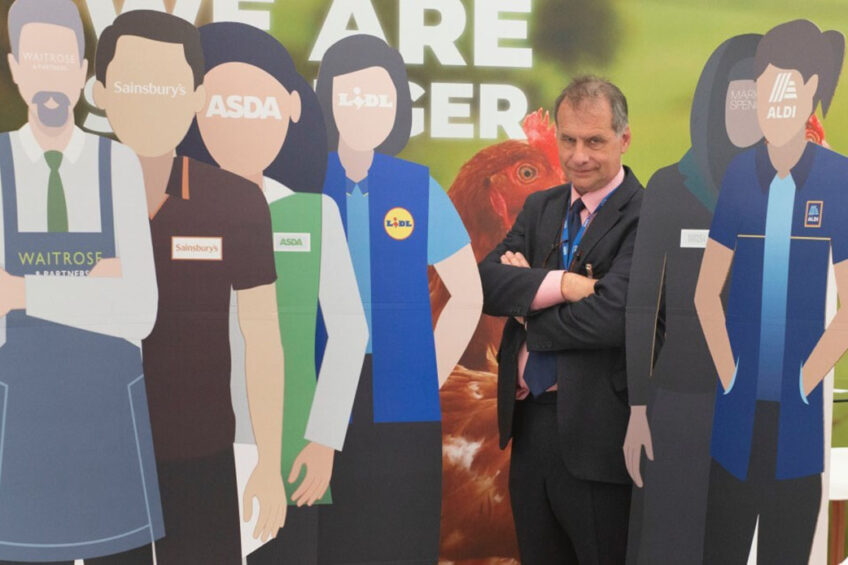
Financial pressures on egg producers caused by the rise in fuel, feed, energy, pullet and transport costs, compounded by avian influenza and Brexit issues, is likely to lead a 5 million reduction in the UK’s flock. Mark Williams, British Egg Industry Council chief executive, said during the UK Pig & Poultry Fair and Conference that cost pressure had to be addressed.
Williams said that on top of cost pressure, there could be significant changes in the way birds are reared, due to retailers moving to stop using eggs from enriched cages by 2025. He predicted the free-range sector would grow from 60% to 75%, barn production would rise from just under 2% to 13% to ensure an entry level for retailers’ customer base, while the organic sector could rise a couple of points to 6%, although this was dependent on the forthcoming newDefra organic standards regulation.
Enriched cage production would fall from 35% to just 6%. He expected to see further avian influenza pressures following the 117 cases recorded this winter. “We have to prepare for the fact that we will be challenged again at the end of this year and the following year as this virus – H5N1 and H5N8 – is still around.” The industry was also under pressure from beak trimming with the government asking when the sector can ban the practice. A date of 2030 has been mooted but Williams said the reason why it was still being used was clear – for the welfare of the birds.
Elwyn Griffiths, owner of Griffiths Family Farms, said the sector was facing a perfect storm with producers now facing layer diets of £400 (US$ 490) per tonne due to the effects of the war in Ukraine. “You can’t just blame the supermarkets – it is suppliers’ responsibility to supply at levels that are sustainable.”
But British Free Range Egg Producers Association (Bfrepa) chief executive, Robert Gooch, voiced his frustration after senior egg buyers from retailers failed to respond to his call to state what steps they are taking to support hard-pressed egg farmers. None responded to his call which led to cardboard cut-outs of company representatives being left on an empty stage.
Severe market conditions
Market conditions are threatening to stop production temporarily or put producers out of business entirely. Gooch noted that egg producers had been hit with huge hikes in production costs in recent months. Feeding hens was now 50% more expensive, while energy costs have risen by 40%. Spending on fuel has rocketed by 30% while labour and packaging costs have also increased.
“The current situation is ruinous. We have written to all the major retailers asking for their help but, to date, we have been largely ignored. We are not crying wolf – this isn’t something retailers can ignore in the hope it will go away. If the UK’s biggest supermarkets don’t increase the price of free-range and organic eggs to a level where farms can break even, there will be egg shortages by the end of this year. Only the retailers have the power to prevent a mass exodus and keep British free-range eggs stocked on supermarket shelves for their customers.”
Somerset producer, Jeremy Walker, said it was necessary to cut supply as soon as possible. One supermarket boss, John Kirkpatrick, Tesco agriculture manager, accepted that the situation for both retailers and producers was “hugely challenging” and volatility was likely to be a challenge for years to come in the light of the Ukraine war but that the retailer remains very customer focused.
Retails and net-zero carbon targets
Kirkpatrick said the retailer was determined to meet net-zero carbon targets by 2050 and its partnership with WWF was concentrating on reducing greenhouse gas emissions across a basket of shopping: “It’s a huge focus of the business and something I feel passionate about.”
He cited insects, especially in broiler starter diets, as a protein replacement for soya as a huge opportunity, adding that the company had called on the UK government to do more to unlock innovation in UK food supply chains and support innovations to market readiness. Tesco, in partnership with WWF, is specifically calling on the government to set out timelines and processes for updating outdated regulations that hinder the upscaling of late-stage innovations, such as insect protein in animal feed or sustainable low carbon fertilizers.
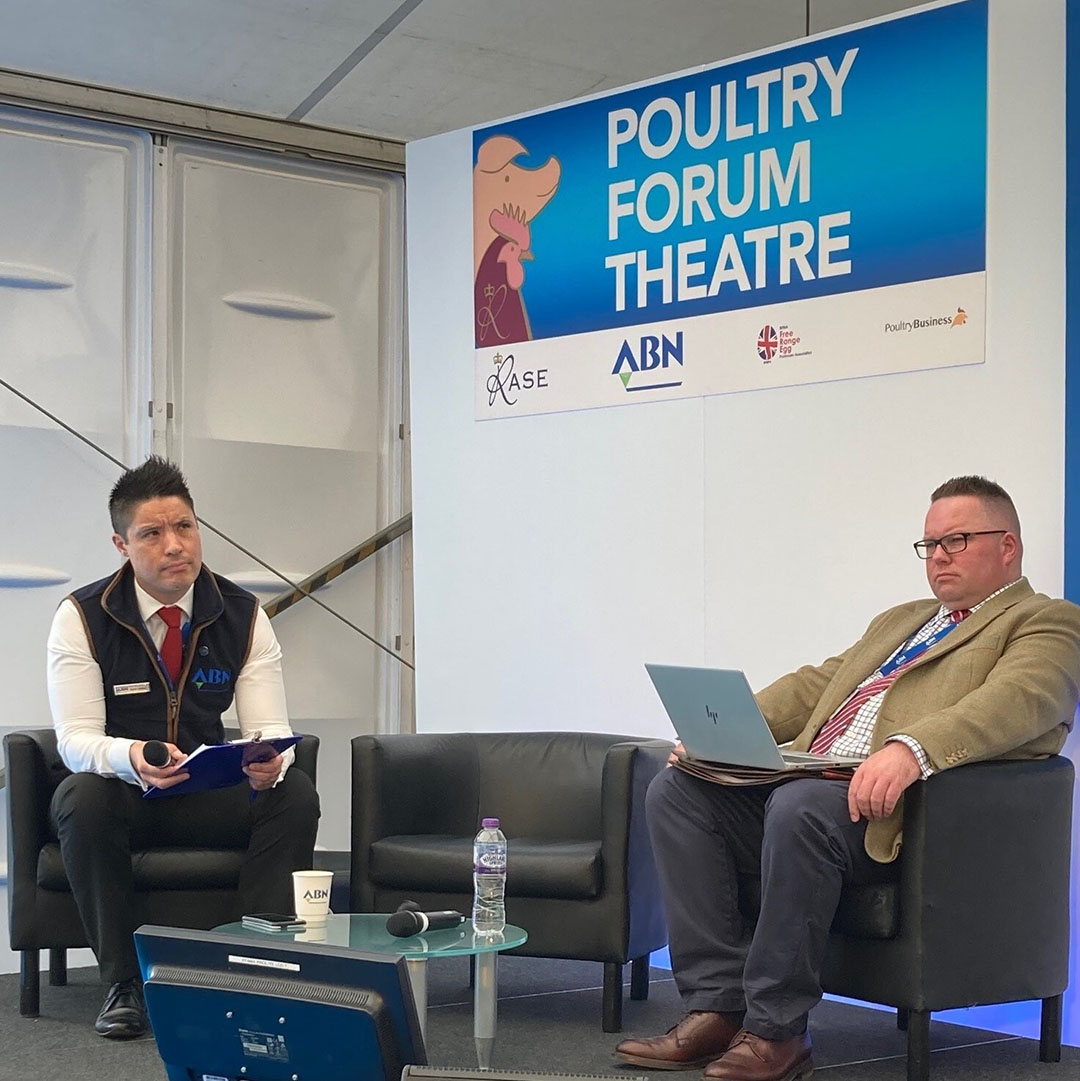
Kirkpatrick said Tesco was working with WWF on a range of projects, including recycling effluent and litter, phosphorus, solar and carbon capture and soya. The company has launched an Innovations Connections scheme to address issues preventing promising sustainability innovations from being adopted at scale in food supply chains by identifying suppliers who can help to scale up new ideas and technologies, with the winners each receiving £150,000 (US$ 183,500).
Tanya Steele, WWF CEO, said she hoped the initiative would help achieve its goal of halving the environmental impact of the average UK shopping basket. Kirkpatrick also touched on its RSPCA Assured Room to Roam birds that were launched in 2020 alongside Red Tractor Assurance’s Enhanced Welfare Module, giving the birds greater space allowance and increased environmental enrichments.
Better Chicken Commitment
Responding to a question from James Hook of PD Hook, Kirkpatrick said the company has not followed Marks and Spencer in moving to 100% Better Chicken Commitment standards and seems unlikely to match Sainsbury’s move to require birds are kept at 30 kg/m2 from the first quarter next year. Currently, the birds used are Hubbard JA87 but the company is moving to Redbro birds from September, and while its Room to Roam birds have had a good uptake they still amount to only 2% of total products. Consumers at this time of hardship are interested in value and quality, he added.
Nick Davies, 2 Sisters Food Group agriculture director, said farmers had received a raw deal during the Covid-19 pandemic, despite ensuring that food was always available on retail shelves. 2 Sisters has had to make some monstrous decisions to ensure bird welfare as plants faced shutdowns due to disease outbreaks.
Davies also stated that the company is firmly focused on reducing its carbon footprint for each of its production tiers and also said that while at the end of this year it would be the largest supplier of Better Chicken Commitment birds, people had to recognize that its environmental footprint was not as sustainable as more conventional stocking rates. The drive to replace soya was another key issue for the company but it should not be to the detriment of bird welfare, he added, saying there was a need for a common form of reporting on the issue across the industry.
Davies praised the work of the British Poultry Council in tackling Brexit and international trade issues and pointed to its work in educating Prime Minister Boris Johnson who had claimed soaring costs were down to global energy problems. “It’s not just fuel but labour, litter, feed and water – it’s not one isolated issue.”




